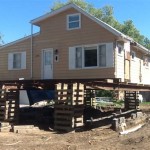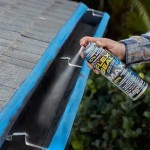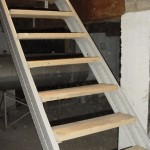Will Home Insurance Cover a Flooded Basement? Understanding Your Coverage
A flooded basement represents a significant concern for homeowners, often resulting in substantial property damage and disruption. A crucial question in these situations is whether home insurance policies extend coverage to mitigate the financial burden associated with the incident. The answer to this question is not always straightforward, as the coverage depends on the cause of the flooding, the specifics of the insurance policy, and any endorsements or exclusions that may apply. This article will delve into the intricacies of home insurance coverage for flooded basements, providing a comprehensive understanding of the factors that determine whether a claim will be approved.
Homeowners insurance, also known as hazard insurance, is designed to protect a dwelling and its contents from a range of perils, such as fire, wind, and certain types of water damage. However, the typical policy contains limitations regarding water-related incidents, particularly those involving flooding. The distinction between different types of water damage is paramount when determining coverage. For instance, water damage resulting from a burst pipe may be covered under a standard policy, whereas flood damage caused by external sources like rainwater or a nearby overflowing body of water typically requires a separate flood insurance policy.
The initial step in determining coverage involves identifying the source of the water entering the basement. This determination is crucial because it directly impacts whether the loss is covered under the standard homeowners policy or necessitates a separate flood insurance policy. Failing to accurately identify the cause may lead to a denied claim or delays in processing the claim.
It is essential to carefully review the insurance policy's declarations page and policy wording to understand the extent of coverage, any applicable deductibles, and any specific exclusions that may pertain to water damage. Homeowners should familiarize themselves with the policy's terms and conditions to ensure they are adequately protected against potential risks.
Key Point 1: Understanding the Source of the Water Damage
The source of the water causing the basement flooding is the primary determinant of whether a home insurance policy will provide coverage. Home insurance policies typically cover water damage that originates internally, meaning the water source is within the home's plumbing or appliances. Examples include burst pipes, broken washing machine hoses, or malfunctioning water heaters. In these instances, the water damage is considered sudden and accidental, triggering coverage under the standard policy, subject to the policy's deductible and limitations.
However, if the water originates from an external source, such as rising floodwaters due to heavy rainfall, river overflow, or storm surge, the damage is generally not covered by standard homeowners insurance. These types of events are categorized as floods and require a separate flood insurance policy obtained through the National Flood Insurance Program (NFIP) or a private flood insurance provider. The distinction is based on the premise that flooding is a widespread and catastrophic risk that requires specialized coverage.
Another scenario involves seepage or groundwater intrusion. This type of water damage occurs when water gradually seeps through the foundation walls or floor of the basement. Standard homeowners policies often exclude coverage for this type of water damage, viewing it as a maintenance issue rather than a sudden and accidental event. The rationale behind this exclusion is that homeowners are responsible for maintaining their property and preventing water intrusion through proper grading, sealing, and drainage.
Sewer backups are often a gray area. A standard home insurance policy often doesn't cover damage from sewer backups unless an endorsement has been purchased. If a sewer line serving the house clogs and causes wastewater to back up into the basement, the damage resulting can be extremely expensive, and the expense is not covered without this special rider to the policy.
In situations where the water source is unclear, consulting with a qualified insurance professional or a water damage restoration specialist can help determine the cause and assess the potential for coverage under the existing homeowners policy. Thorough documentation, including photographs and videos of the damage, as well as any relevant maintenance records, can be helpful in supporting a claim.
Key Point 2: The Role of Flood Insurance
Flood insurance is a separate policy specifically designed to protect homeowners from the financial losses associated with flooding. The NFIP, administered by the Federal Emergency Management Agency (FEMA), is the primary provider of flood insurance in the United States. Private flood insurance options are also available, offering potentially broader coverage and higher coverage limits than the NFIP.
Flood insurance policies typically cover direct physical losses resulting from flooding, including damage to the building structure, such as walls, floors, and foundations, as well as damage to personal property, such as furniture, appliances, and electronics. However, there are limitations on the coverage amounts and specific items that are covered.
It's important to understand that flood insurance policies have specific definitions of what constitutes a flood. Generally, a flood is defined as a general and temporary condition of partial or complete inundation of two or more acres of normally dry land area or of two or more properties (at least one of which is the policyholder's property) from overflow of inland or tidal waters, unusual and rapid accumulation or runoff of surface waters from any source, or mudflow.
Homeowners who live in areas at high risk of flooding, as designated by FEMA flood maps, are often required to purchase flood insurance as a condition of their mortgage. Even those who do not live in high-risk areas may consider purchasing flood insurance, as flooding can occur anywhere, regardless of geographic location. The cost of flood insurance varies depending on factors such as the property's location, elevation, and the amount of coverage desired.
Homeowners should also be aware of the waiting period associated with flood insurance policies. Typically, there is a 30-day waiting period between the purchase of a flood insurance policy and the effective date of coverage. This waiting period is intended to prevent individuals from purchasing flood insurance only when a flood is imminent. There are a few exceptions to this waiting period, such as when flood insurance is required in connection with a mortgage or when the policy is purchased during a community's initial flood map revision.
Key Point 3: Preventive Measures and Policy Exclusions
Taking proactive steps to prevent basement flooding can minimize the risk of water damage and potentially avoid the need to file an insurance claim. These measures include maintaining proper grading around the foundation, ensuring that gutters and downspouts are clear and functioning correctly, installing a sump pump in the basement, and sealing any cracks or openings in the foundation walls.
Additionally, homeowners should be aware of common policy exclusions that may limit or eliminate coverage for water damage. For example, most policies exclude coverage for damage caused by neglect or failure to maintain the property. This means that if a homeowner is aware of a potential water problem, such as a leaky pipe, and fails to take reasonable steps to repair it, the resulting damage may not be covered.
Another common exclusion relates to pre-existing conditions. If a basement has a history of water intrusion, and the homeowner fails to take corrective measures to address the problem, the insurance company may deny coverage for future water damage events. Insurance companies expect homeowners to mitigate risks and prevent further damage to their property.
Wear and tear is another exclusion commonly found in homeowners insurance policies. Damage that occurs gradually over time due to normal wear and tear is generally not covered. This includes things like rotting wood, corroded pipes, or deteriorated roofing materials. Homeowners are responsible for maintaining their property and addressing these types of issues before they lead to water damage.
Furthermore, some policies may exclude coverage for certain types of water damage, such as mold or fungi, even if the underlying cause of the water damage is covered. Mold remediation can be expensive, so it's important to understand whether the policy provides coverage for these types of expenses. Some policies may offer limited coverage for mold remediation, while others may exclude it altogether.
It is advisable to periodically review your home insurance policy with an insurance professional to ensure that you have adequate coverage for your specific needs and circumstances. Discuss any potential risks or concerns you may have regarding water damage and ask about available endorsements or supplemental coverage options that can enhance your protection.
In the event of a flooded basement, it is crucial to take immediate action to mitigate the damage and prevent further loss. Contact your insurance company as soon as possible to report the incident and initiate the claims process. Document the damage thoroughly with photographs and videos, and keep detailed records of any expenses incurred for repairs or temporary living arrangements. Cooperate fully with the insurance company's investigation and provide any requested documentation promptly. The information provided in this article is meant to be for general educational purposes only and should not be taken as legal or financial advice.
Why Your Insurance Likely Won T Protect You If Basement Floods Cbc News

My Basement Flooded Will Insurance Company Cover It Do I Need A Public Adjuster Norristown Pa Patch

Does My Home Insurance Cover A Flooded Basement
.jpg?strip=all)
Will Insurance Cover Water Damage In A Finished Basement

Does Homeowners Insurance Cover Water Damage Money

Solved Does Homeowners Insurance Cover Water Damage Bob Vila

Does Home Insurance Cover Water Damage

Storm Damage Homeowners Insurance 5 Things You Need To Know Auto Owners
.jpg?strip=all)
Will Insurance Cover Water Damage In A Finished Basement

Home Insurance Does It Cover Foundation Repairs Or Basement Flooding Acculevel
Related Posts







